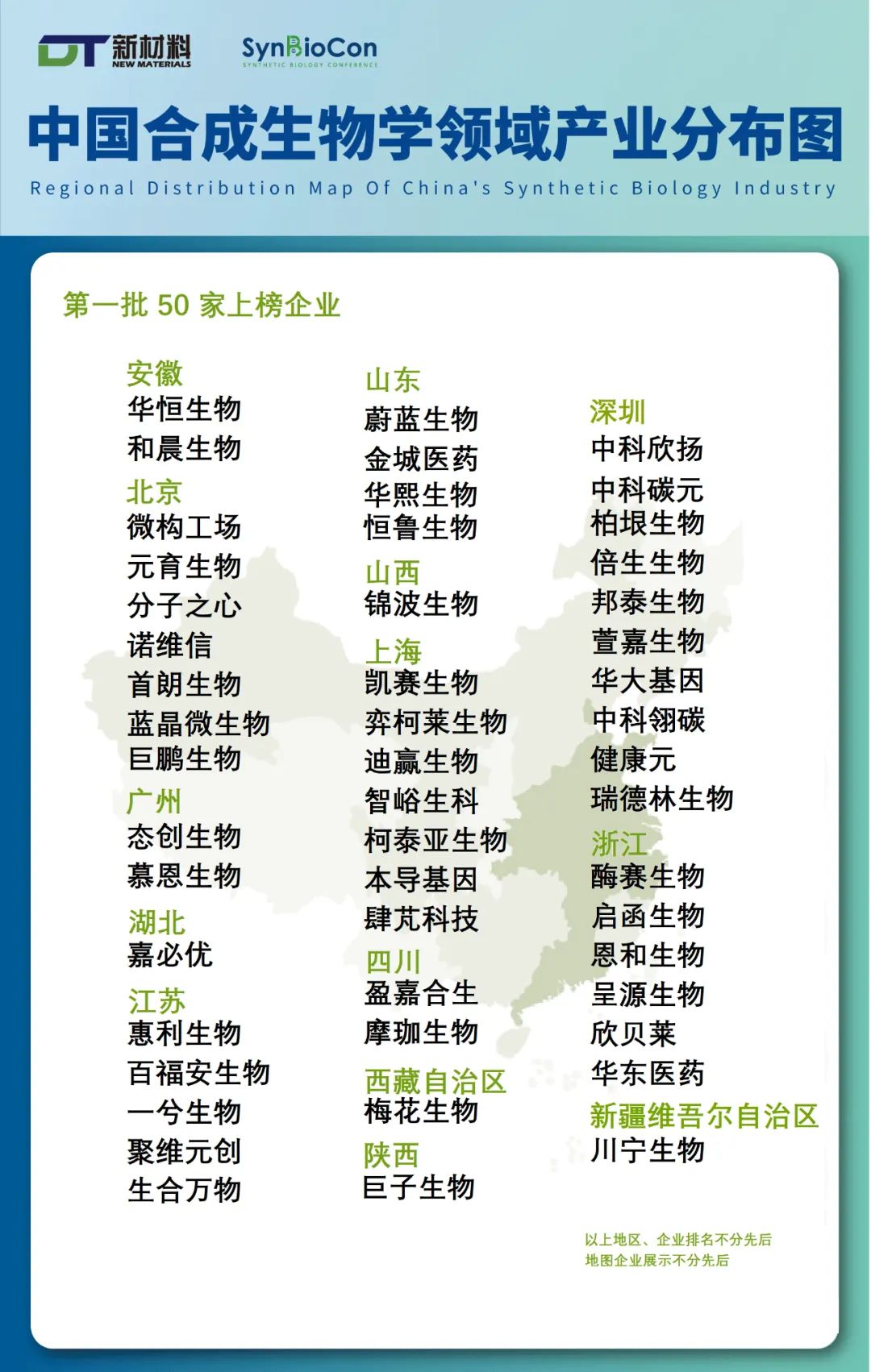Vland Listed among the "First Batch of 50 Enterprises in Synthetic Biology in China”
The "2nd Synthetic Biology and Green Biomanufacturing Conference (SynbioCon 2023)" hosted by DT New Materials and organized by Enzymaster will be held in Ningbo, Zhejiang Province, China on August 23-25, 2023. The "First Batch of 50 Enterprises in Synthetic Biology in China” has been announced before the conference, and Vland is on the list.
In addition, China Synthetic Biology Industry Map (2023) will also be released by DT New Materials prior to the conference to present the latest industrial developments, including Chinese listed companies in synthetic biology, upstream activity, representative products, R&D progress, services and enterprises of synthetic biology, foreign-funded companies that strengthen cooperation and innovation in China, etc.
The term "synthetic biology" pops up frenquently in academic journals and on the Internet as the concepts of carbon peaking and carbon neutrality develop. So what is synthetic biology?
Synthetic biology involves a huge number of industries, highly diversified technology and industrialization, and a long chain of development. Generally, it can be divided into two parts: upstream and downstream. The upstream refers to enabling technologies, including DNA/RNA synthesis, sequencing, and omics, and the downstream includes companies that use synthetic biology technology to develop and provide various services or products, that is, real players in the industry.
The products of synthetic biology are designed and manufactured in a process which can be abstractly summarized into three links: input → front end → back end. The front end is at the core, which is to modify/transform chassis cells (strains), and the back end is to realize biological production through the fermentation process, including steps such as fermentation, separation and purification, modification and synthesis, and product application development. The input is all kinds of raw materials (such as glucose) required for bacteria.

(Source: SynbioCon 2023)


 Add.:
Add.:  Tel.: +86 532 88969585
Tel.: +86 532 88969585 Email: kdn@vlandgroup.com
Email: kdn@vlandgroup.com